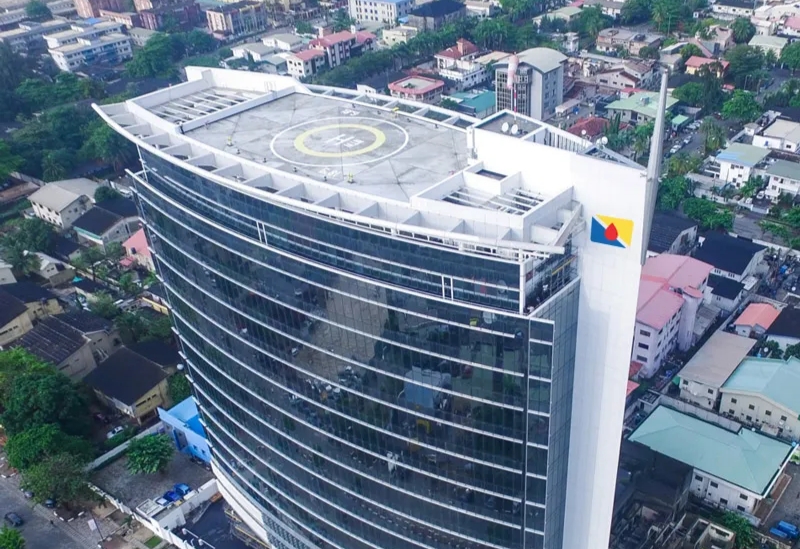Peter Uzoho
As the licences of the electricity distribution companies in Nigeria (Discos) expire in 2028, the federal government is considering the introduction of a minimum capital adequacy requirement as part of the license renewal process to strengthen the financial health and liquidity position of the utility firms.
Minister of Power, Adebayo Adelabu, disclosed this yesterday in Lagos while speaking during the Leadership Seminar at the ongoing Nigeria Energy Exhibition and Conference, with the theme: “Powering Nigeria through Investment, Innovation, and Partnership.”
Adelabu observed that the Nigerian power sector continues to face challenges of under-capitalisation among several Discos and a severe debt burden that has constrained their operational efficiency and service delivery over the years.
“As the tenure of their operational licenses approaches renewal, the government intends to introduce a minimum capital adequacy requirement as part of the license renewal process, to strengthen the financial health and liquidity position of the utilities”, the minister stated.
THISDAY recalls that Adelabu had, in early October, at an industry event in Abuja, threatened that the federal government would not renew the licences of poorly performing Discos when they expire in 2028, blaming the Discos for the persistent poor electricity supply across the country.
He had said the inefficiency of the Discos remained a major bottleneck in the NESI, warning them to sit up or be kicked out.
“The distribution companies need to sit up. They are a major bottleneck in the sector, and the government is doing everything possible to ensure they meet expectations. Their licences will expire in two years, and there will be major reforms before any renewal.
“Those that have not shown good faith, demonstrated technical expertise, proven financial strength and stability, or acted in the country’s best interest will be kicked out.
“Whatever the government needs to do to ensure every household is metered within the next three to five years will be done. We will leave no stone unturned,” Adelabu had stated at the time.
However, at the ongoing event in Lagos, where he touched on power sector commercialisation and the efforts of the government, the minister said the government was deepening power sector commercialisation to strengthen revenue, liquidity, and investor confidence.
He noted that through tariff policy reforms, which enabled cost-reflective tariffs for select consumers, supply reliability has improved while reducing energy costs for industries
He further said industry revenue has increased by 70 per cent to N1.7 trillion in 2024 compared to the previous year, and that the revenue was expected to exceed N2 trillion for 2025.
To stabilise the market, Adelabu stated that President Bola Tinubu had approved a N4 trillion bond to clear verified generation companies (GenCo)’s and gas supply debts.
Alongside this, he added that a targeted subsidy framework was being developed to protect vulnerable households and ensure a sustainable path toward full commercialisation and viable industry.
On sector performance monitoring and enforcement, he said the National Regulator (the Nigerian Electricity Regulatory Commission) and the State Regulatory Commissions were working in close synergy to drive performance improvement across the utilities.
He further said the federal government was pursuing a comprehensive, multi-pronged approach to reposition the Nigerian power sector for sustainability, efficiency, and growth.
This approach, he explained, spans critical pillars which include legislation, policy reforms, infrastructure development, energy transition and access expansion, and local content and capacity development with each designed to address structural challenges, unlock private capital, and enhance service delivery across the electricity value chain.
On legislation, Adelabu said the enactment of the Electricity Act 2023 remains a major milestone, providing a robust governance and regulatory framework for the Nigerian Electricity Supply Industry (NESI).
He noted that the Act devolves regulatory powers to the states, enables subnational markets, promotes competition, and empowers private participation across the value chain, adding that this represents a clear shift towards a liberalised and investment-friendly electricity market.
Since the passage of the Act, he said 15 states have received regulatory autonomy to establish subnational electricity markets with one fully operationalised, informing that his ministry was working actively with those states to ensure strong alignment between the wholesale market and the retail market.
“In this regard, we believe the active involvement of state governments, particularly in the off-grid segment is critical, given the series of roundtable engagements held with governors by the Rural Electrification Agency (REA), as well as the ongoing efforts to closely track the Distribution Company (DisCo) performance within their respective jurisdictions”, Adelabu said.
On the policy front, he recounted that the Ministry has developed the Integrated National Electricity Policy, approved by the Federal Executive Council in February, with its accompanying Strategic Implementation Plan now being finalised to harmonise existing policies and provide a coherent roadmap for sustainable sector growth.
This, he said, marks the first comprehensive, sector-wide policy framework in nearly two decades.
Highlighting one of the ugly realities in the Nigerian power sector, Adelabu said the country has over 10 gigawatts (GW) of stranded generation capacity while millions of Nigerians still live without electricity from the grid.
According to him, that amount of energy being wasted could power industries, create jobs, and even support electricity exports to neighboring countries through the regional power pool.
In the area of infrastructure development, he mentioned that the federal government has introduced targeted national programmes aimed at accelerating the viability, expansion, and modernisation of the national grid.
“Under the phase zero of the Presidential Power Initiative (PPI), we enhanced transmission capacity, grid stability, and overall system reliability, with over 700MW of additional transmission capacity already achieved.
“Under Presidential Power Initiative (PPI) Phase One, contracts have been signed with Siemens Energy, CMEC, Elswedy Electric, and Power China. Financing arrangements are underway to support implementation. Phase one is planned to add 7000MW operational capacity to the grid.
“In parallel to the grid expansion, generation capacity is being expanded through the rehabilitation of existing NIPP plants to unlock about 345MW, alongside the successful integration of the 700MW Zungeru Hydropower Plant into the grid. Collectively, these interventions have helped sustain an average generation capacity of approximately 5,300MW in 2024, up from 4,200MW recorded in 2023.
“In addition, the unbundling of the Transmission Company of Nigeria into two organisations: the Nigerian Independent System Operator (NISO), which manages the operation of Nigeria’s electricity grid and coordinates the electricity market, and the Transmission Service Provider (TSP), which owns, maintains, and expands the physical transmission infrastructure. This marks a long-awaited and critical structural reform in the power sector,” the Minister reeled out. In addition, he said the government has operationalised the Presidential Metering Initiative (PMI) to close the national metering gap and improve sector viability.
“Already, N700 billion has been secured from FAAC to deploy 1.1 million meters by the end of 2025, and 2 million annually over the next five years under the PMI.
“This complements the 3.2 million meters being procured through the World Bank’s DISREP program, positioning Nigeria to close the metering gap within five years and strengthen transparency and revenue assurance across the value chain,” he said.
To advance Nigeria’s energy transition and access goals, the minister mentioned that the government was leveraging bilateral funding and development finance to de-risk investments and attract private participation for access expansion across underserved and unserved communities, educational institutions, healthcare facilities and government institutions.
He revealed that in the past two years, over $2 billion has been mobilised through key facilities, including the $750 million World Bank DARES programme for off-grid and mini-grid expansion, the $500 million NSIA RIPLE platform to unlock private capital for renewables, and the $190 million JICA fund to complement DARES.
He said collectively, these interventions were accelerating renewable energy deployment and expanding reliable, affordable power across the country
“We are therefore open to strategic partnerships to mobilise the necessary investments and unlock this potential. Our market fundamentals are improving, our policy environment is clear, and the national leadership is committed to creating the enabling conditions for long-term investment and innovation.
“As we engage in conversations over the next two days, I urge us to think boldly, collaborate strategically, and invest with purpose. The opportunities before us are immense, not only to bridge our nation’s power gap, but to ignite a new era of industrial growth, technological innovation, and shared prosperity. Together, through sustained investment, forward-thinking innovation, and strong partnerships, we can power Nigeria’s journey toward a brighter, more resilient, and energy-secure future”, Adelabu added.



